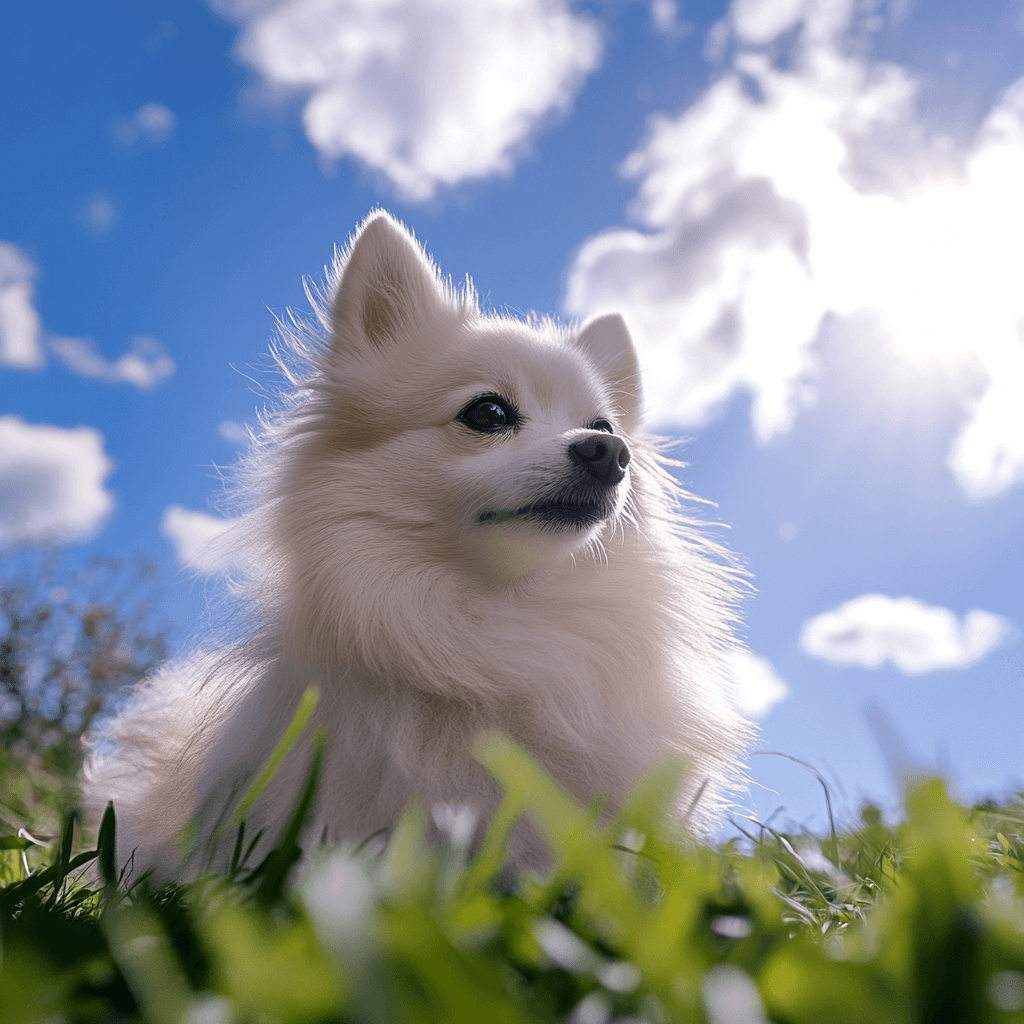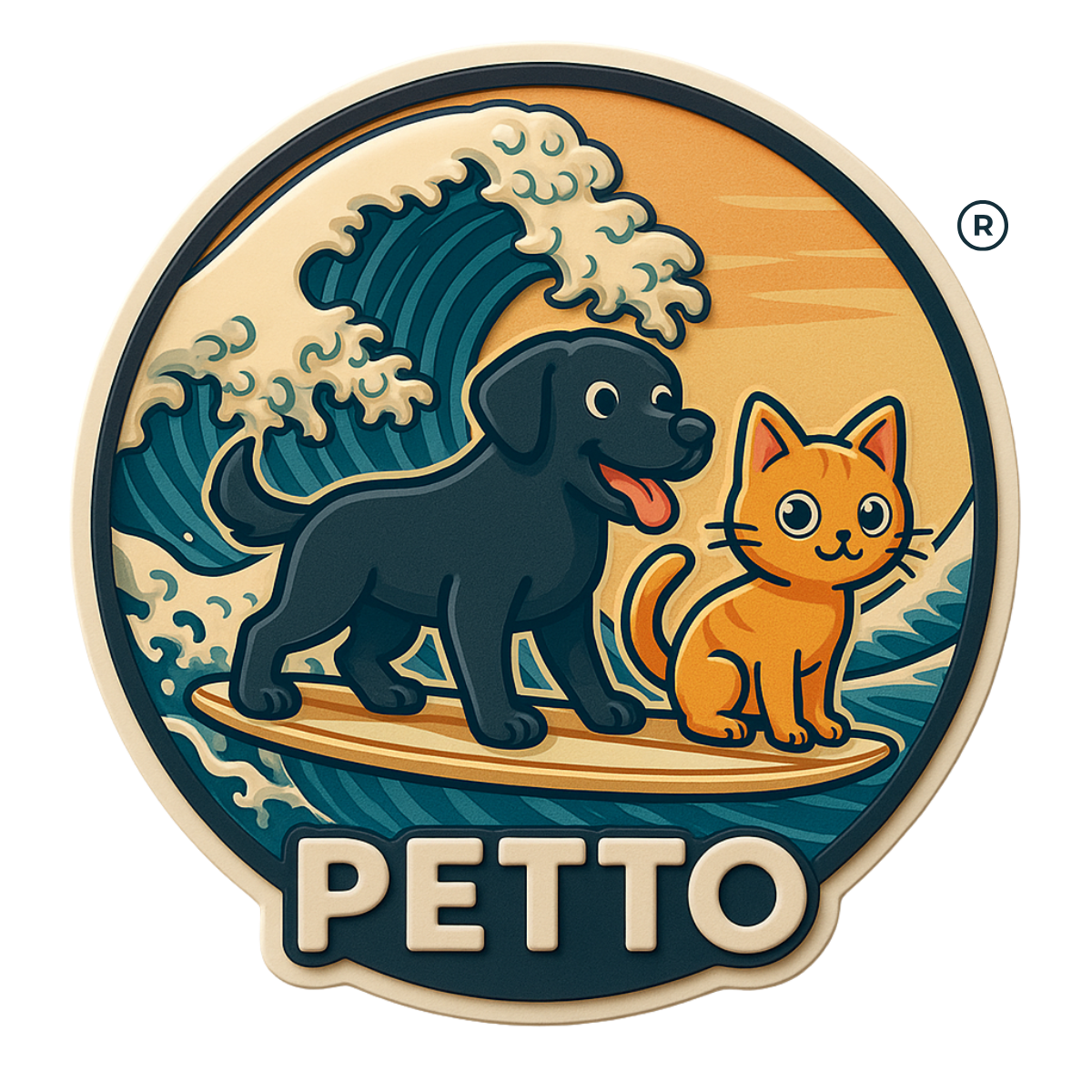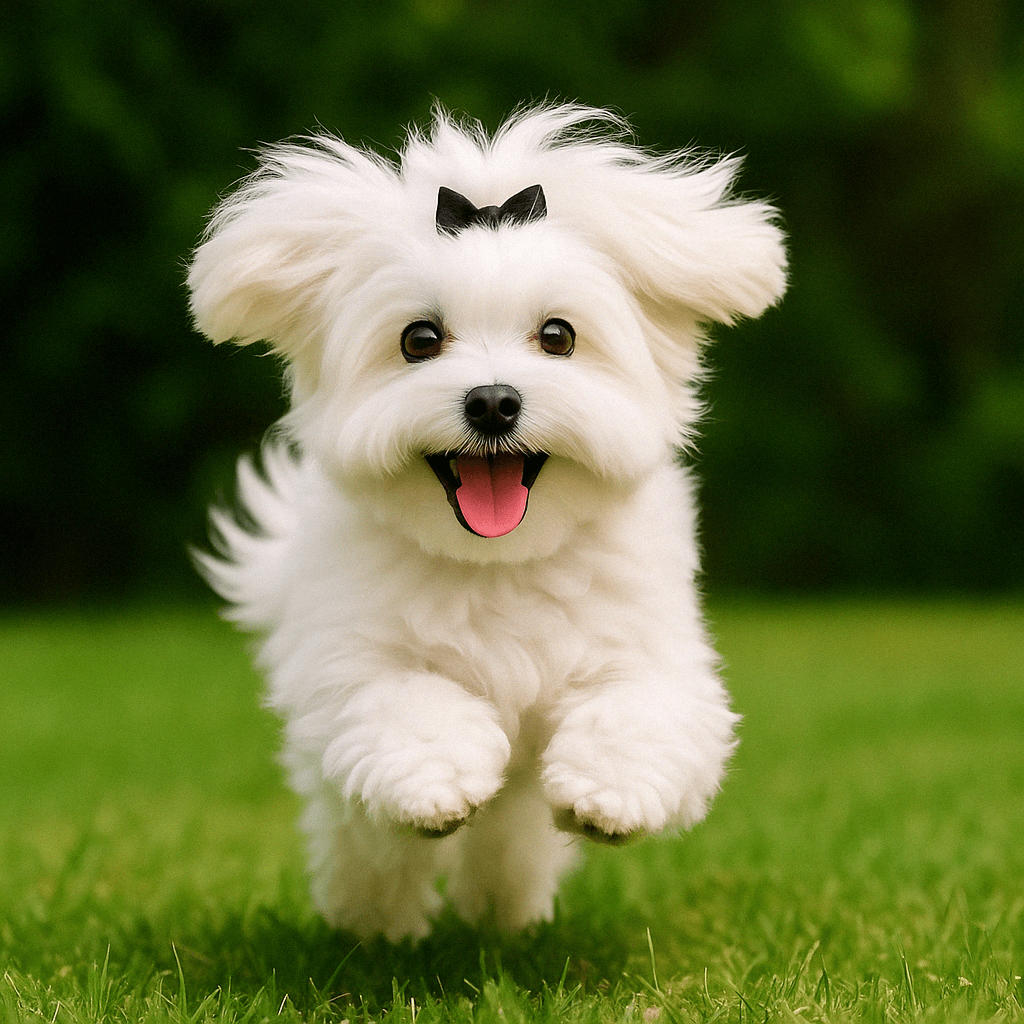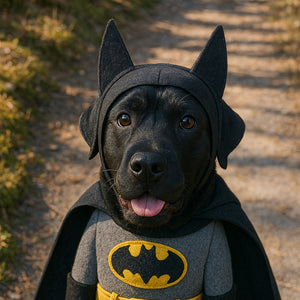
Pomeranian - Character, Care and the Best Petto Accessories
The Pomeranian , also known as the Pomeranian or Pomeranian, is one of the most recognizable and charming dog breeds in the world. Their distinctive, lush coat and cheerful disposition have made them a favorite of dog lovers worldwide. Small in stature but big in spirit, this breed is perfect for those seeking an intelligent, devoted, and energetic pet. In this article, we'll explore everything you need to know about Pomeranians—from their origins, appearance, and personality, to details about grooming, health, and daily care.

Contents
- Origin of the Pomeranian breed
- The appearance and color of the Pomeranian
- The character and behavior of the Pomeranian
- Who is a Pomeranian perfect for?
- Pomeranian care – how to care for its coat and hygiene?
- How to Feed a Pomeranian? Nutritional Tips
- Pomeranian Health – Common Problems and Prevention
- Raising a Pomeranian – Training and Socialization
- Pomeranian on the go – how to keep him safe?
- Frequently Asked Questions (FAQ)
- Summary
Origin of the Pomeranian breed
The Pomeranian breed originates from Pomerania, a region located on the border of present-day Poland and Germany. The Pomeranian's ancient ancestors were much larger – they belonged to the Nordic Spitz group and were used as herding dogs. Over time, they were selected for their smaller size and striking appearance, leading to the development of a miniature version known today as the Pomeranian. Their true popularity came when Queen Victoria fell in love with the breed and introduced them to the salons of the English aristocracy. Since then, Pomeranians have become synonymous with luxury, charm, and prestige. Modern Pomeranians are primarily companion dogs – loyal, alert, and incredibly devoted to their owners.
The appearance and color of the Pomeranian
The Pomeranian is a dog with a unique appearance that is difficult to confuse with any other breed. Here are its key features:
- Height : 18–22 cm at the withers
- Weight : 1.5–3.5 kg
- Build : compact, with a raised tail carried over the back
- Head : fox-like, with small, erect ears
- Eyes : dark, round, expressive
However, it is the fur that attracts the most attention:
- Double coat : dense undercoat and long, standing guard hair
- Neck and chest : ample "collar" giving a fluffy appearance
- Color : Over 20 recognized variants! The most popular are: orange, cream, black, white, beaver, blue merle, tricolor, sable, and chocolate.
The coat requires regular care, but it is this care that makes the Pomeranian look like a living plush toy.

The character and behavior of the Pomeranian
Although the Pomeranian looks like an innocent toy, it has the temperament of a true lion. Dogs of this breed are:
- self-confident ,
- lively and energetic ,
- vigilant and brave ,
- loyal to the owner ,
- sometimes stubborn ,
- distrustful of strangers .
They are excellent alert dogs – a Pomeranian will always warn of a visitor (or potential threat). Despite their small size, they are unaware of their own size and can often bark at much larger dogs. This breed requires human attention and presence. Pomeranians do not tolerate loneliness well – if left alone for long periods, they may begin to exhibit undesirable behaviors, such as barking, howling, or destroying objects.
Who is a Pomeranian perfect for?
The Pomeranian is a dog that, contrary to appearances, isn't your typical cuddly toy. Although they look like stuffed animals, they have strong personalities and a strong need for human contact. The Pomeranian will do best in a home:
- a lonely person looking for a loyal companion,
- couples or families who treat a dog as a full member of the family,
- an active senior who wants a companion for daily walks,
- someone working from home who can provide the dog with constant presence and attention.
Pomerek will not be a good choice for:
- families with very young children who may unknowingly harm a small dog,
- people who spend most of the day away from home and cannot provide their dog with company,
- those looking for a low-maintenance dog – the Pomeranian requires regular brushing and grooming.
Despite its small size, the Pomeranian is a dog with significant emotional demands and a need for closeness. If you're willing to dedicate time to building a relationship, training, and daily care, you'll gain a loyal friend for years to come.
Pomeranian care – how to care for its coat and hygiene?
Grooming a Pomeranian is one of the most important tasks for every Pomeranian owner. Their rich, double-layered coat requires regular grooming to maintain its good condition and prevent skin problems and mats.
Combing and brushing
- Daily brushing : preferably with a slicker brush and a wide-toothed comb.
- Removing the undercoat : especially during the shedding season (spring, autumn), it is worth using a furminator.
Bathing and drying
- Baths every 3–4 weeks : Use a mild shampoo for dogs with thick fur.
- Drying with a hairdryer : it is very important to dry the thick coat thoroughly, preferably using a cool setting.
Additional hygiene
- Ear cleaning : once a week to prevent infections.
- Nail trimming : every 3–4 weeks if your dog does not wear them down naturally.
- Eye care : removal of secretions and tears, especially in dogs with light-colored fur.
- Dental care : brushing at least 3 times a week, preferably daily.
Regular grooming not only improves your dog's appearance but also their health and comfort. A Pomeranian who isn't properly groomed may suffer from overheating in the summer and skin conditions.

How to Feed a Pomeranian? Nutritional Tips
Proper nutrition for the Pomeranian is key to its longevity, healthy coat, and energy. Despite its small size, this breed has a very active metabolism and requires a nutritious diet tailored to its needs.
What food for a Pomeranian?
- Dry food for small breeds : choose products containing a lot of animal protein, omega-3 and 6 fatty acids and vitamins A, E, D.
- Wet food : as a dietary supplement, especially for picky dogs.
- Grain-free food : especially recommended for dogs with sensitive digestive systems.
Dosage and rhythm of meals
- Puppies : 3–4 meals a day.
- Adult dogs : 2 meals a day.
- Older Pomeranians : it is worth considering specialized food for senior dogs.
What to avoid?
- Human snacks – especially chocolate, grapes, onions, fatty meats.
- Feeding table scraps.
- Too many treats can lead to obesity.
Supplementation
It is worth consulting with a veterinarian about administering supporting preparations:
- joints (glucosamine and chondroitin) ,
- hair (biotin, salmon oil) ,
- digestion (probiotics and prebiotics) .
Pomeranians tend to be overweight, so it is very important to regularly check their weight and adjust their food intake to their activity level.

Pomeranian Health – Common Problems and Prevention
The Pomeranian is generally a healthy breed, but like any dog, it is predisposed to certain health conditions. Early prevention, a proper diet, and regular veterinary checkups will allow you to enjoy life together for many years.
The most common health problems:
- Tracheal collapse – manifests itself by a dry, "hooting" cough, which intensifies during excitement.
- Dental problems – small dogs often have a tendency to develop tartar build-up and gum disease.
- Patella luxation – an orthopedic condition leading to lameness.
- Heart problems – especially in older individuals.
- Skin allergies – can be caused by food or environmental allergens.
Preventive health care:
- Regular visits to the vet – at least once a year, more often in seniors.
- Vaccinations and deworming – according to the veterinary calendar.
- A balanced diet and physical activity – prevent obesity and support healthy joints.
- Oral hygiene – brushing your teeth daily or giving special dental treats.
The average lifespan of a Pomeranian is 12–16 years , but with proper care, many dogs live up to 17–18 years in very good condition.

Raising a Pomeranian – Training and Socialization
The Pomeranian is a highly intelligent and quick-learner dog, but it can also be stubborn. Therefore, training should begin as early as possible and be conducted in a consistent but gentle manner.
Basic training
- Teach from puppyhood : the most important commands, such as "sit", "stay", "come to me", "no".
- Positive reinforcement : Pomeranians respond well to rewards – treats, praise, toys.
- Avoid physical punishment – it can cause fear and aggression.
Socialization
- Contact with other dogs : introduce your dog to dogs of different sizes from an early age.
- New situations : take him to different places, meet different people.
- Daily walks : teach your dog to respond to its surroundings and stimuli.
How to deal with excessive barking?
Pomeranians are known for barking a lot—it's the breed's natural way of communicating. To minimize this, you should:
- provide a daily dose of exercise and stimulation,
- teach the “quiet” command and reward for its execution,
- do not reinforce the barking with your reaction (e.g. shouting).
Raising a Pomeranian is a time-consuming but very rewarding process. This dog loves to learn and be close to its owner, so it's important to nurture its mental development from the first few months of life.
Pomeranian on the go – how to keep him safe?
The Pomeranian is the ideal traveling dog – compact, easy to transport, inquisitive, and affectionate. However, even a short car ride can be stressful or dangerous if proper precautions aren't taken.
How to transport a Pomeranian in a car?
- Dog car seat – a stable option that allows the dog to observe its surroundings while limiting its movement around the car.
- Dog carrier for the car – ideal for longer journeys, ensuring comfort and safety for the dog.
- Harness with a seat belt – may be an alternative, but does not offer the same level of protection as a carrier or car seat.
In the petto.com.pl store you will find dedicated products for small breeds:
- Petto Oi Single Dog Car Seat
- Petto Oi Fluffy Car Dog Carrier (Gray)
- Cozy and Duo versions for more comfort or two dogs
What is worth remembering when traveling?
- Do not feed your dog just before traveling – this will prevent nausea and vomiting.
- Take breaks every 2-3 hours – let your dog drink, relieve itself and stretch its legs.
- Don't leave your dog in a hot car – even a few minutes can be deadly.
- Bring familiar items – a blanket, a toy, a treat – they will reduce stress and provide a sense of security.
Proper preparation will ensure that traveling with a Pomeranian will be not only safe but also enjoyable – for both the dog and its owner.

Frequently Asked Questions (FAQ)
Is a Pomeranian a dog for beginners?
Yes, provided the prospective owner has the time and willingness to learn. A Pomeranian requires patience, regular grooming, and daily attention. They thrive with people who treat their dog like a member of the family.
Is a Pomeranian suitable for apartment living?
Absolutely! This is a small dog that doesn't require a lot of space, but does require daily walks and mental activity. It's ideal for apartment living.
How much does a Pomeranian cost?
The price of a Pomeranian from a legal FCI breeder in Poland can range from 5,000 to as much as 12,000 PLN. The price depends on the pedigree, color, gender, and reputation of the breeder.
Does a Pomeranian shed?
Yes – especially during coat shedding seasons (spring and fall). Regular brushing significantly reduces the amount of fur left around the house.
Does a Pomeranian get along well with children and other animals?
Yes, but preferably with school-age children who know how to handle a small dog. A well-trained Pomeranian can live harmoniously with other dogs and cats.
How long does a Pomeranian live?
The average lifespan is 12–16 years, but many individuals live up to 18. The key to longevity is preventative care, quality feeding, and exercise.
Can a Pomeranian travel by plane?
Yes, most airlines allow small dogs to be transported in the cabin. However, please check the airline's requirements in advance and prepare an appropriate carrier.
The perfect place for a Pomeranian to sleep? Comfort, warmth, and safety!
The Pomeranian is a dog that loves comfort and closeness. That's why his the bed should not only be soft, but also adapted to its size and needs. In the Sen collection you will find the perfect places to relax for your Pomeranian – from cozy beds to modern cocoons that ensure a good night's sleep and a sense of security. Choose the best model for your pet and take care of his everyday comfort!








![Border Collie – Charakter, Wychowanie, Zdrowie i Najlepsze Akcesoria [Przewodnik 2025]](http://petto.com.pl/cdn/shop/articles/border_collie_merle_2bd2aafe-d846-496e-8bcb-f7041b0ac55e.png?v=1745921667&width=1024)


 https://petto.com.pl
https://petto.com.pl